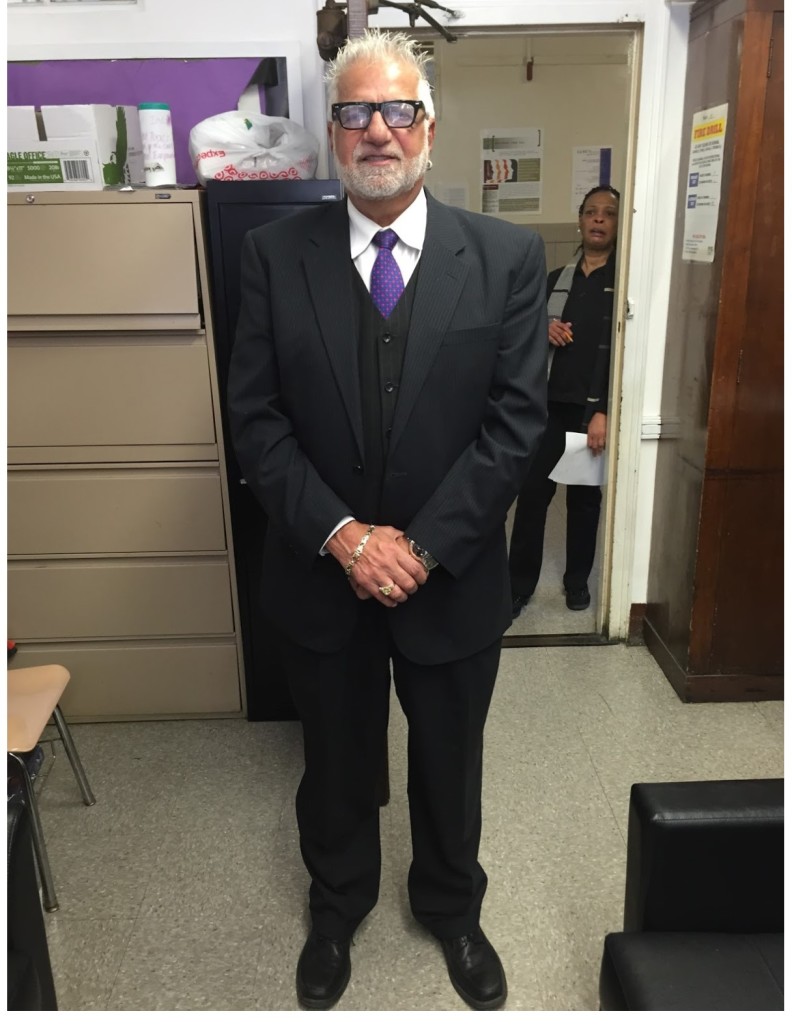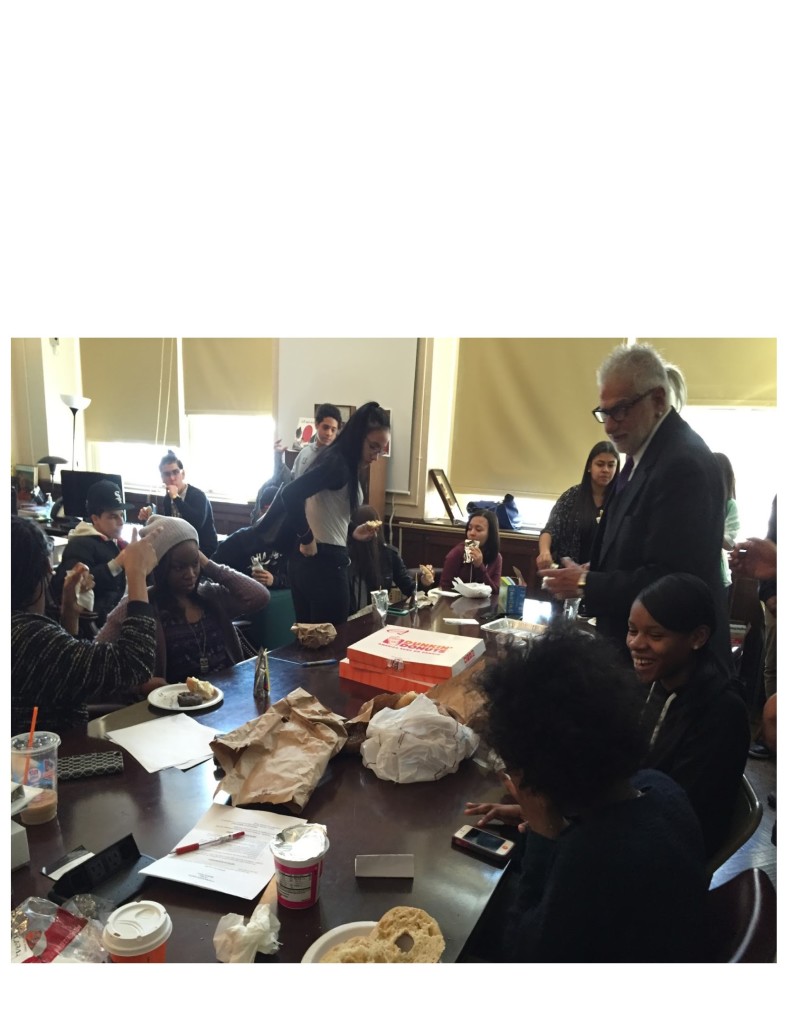Editor’s Note: As its name implies, the Center for Educational Innovation (CEI) exists to change public educational systems for the better. Founded in 1989 as part of the Manhattan Institute for Policy Research, CEI merged in the year 2000 with the 105-year-old Public Education Association specifically to help public schools overcome bureaucratic barriers to better serving their students. They strive to accomplish this by partnering with visionary financial supporters to work directly with teachers, school leaders, and the community to-as stated on the CEI website: “create the schools their children need to succeed.” By placing accountability for scholastic reform on each individual school, rather than on a huge impersonal school system, CEI helps schools like MCSM to be faster and more efficient in creating positive change. A visit from members of CEI is always a welcome chance to secure new educational programs along with the proper funding to implement them.
This winter, two ranking members of CEI who had already donated to MCSM’s annual college trip to Binghamton and Cornell Universities, decided they’d like to get up close and personal with some of MCSM’s best and brightest in a less formal way. RamPage assistant-editor Roberta Nin Feliz was on the scene as Mr. Carl Vinci, the CEI’s Director of Student Support Services and Project B.O.O.S.T. [a program that helps smart kids from low-income neighborhoods qualify for competitive high schools like MCSM] together with Mr. Heyman [a venture capitalist and Off-Broadway director] used gentle wit and ironic charm to erase any social distance between themselves as powerful businessmen and MCSM’s ambitious teens.
By Roberta Nin Feliz
On February 25th, I was informed by Ms. Quinde that there would be a group meeting with the generous funders of this year’s annual college trip to Binghamton and Cornell University. She called me into her office where I met Carl Vinci, the director of Student Support Services from the Center for Educational Innovation, Public Education Association or CEI-PEA. The voluble Carl proceeded to ask me and my friends to sit, asked us what we wanted to do in college, and told us his life story. He emphasized that he grew up in a poor home, and didn’t do well in school. Nevertheless, because he could play basketball and baseball, he got a scholarship to Indiana State.“My father worked,” he explained. “It was my 2 sisters and me . . . we never got the chance to go anywhere.” Mr. Vinci was careful to let us know that his being comfortable and successful now is very different than how things were for him while growing up.
Before the meeting, the participating students all wrote” thank-you” cards and signed a big “thank-you” poster in gratitude for the financing of one of our most popular college tours. The next day at the meeting in Mr. Jimenez’s office, we all gathered around the table where Mr. Vinci and Mr. Heyman, who is a generous private partner and financial supporter of CEI, were awaiting us with donuts and bagels for us to eat.
Mr. Heyman, unlike Carl, spoke very little and sat listening as Carl prompted us to ask questions. As we shared our experiences and thoughts with the two men, Carl asked how many of us had ever gone to a Broadway play. The room was split between those of us who had and those who hadn’t. All of a sudden, Carl said “Well, I’ll get you guys tickets to go to one, how does that sound?” I had heard of the generosity of this organization, but such spontaneous kindness really amazed me. I couldn’t help but wonder if CEI might also want to help our struggling fundraising effort to publish a print edition of the RamPage . . . but a donation to our newspaper suddenly seemed too much to ask after Carl had already volunteered to provide so many students with a once-in-a-lifetime Broadway experience.
Later on, I caught up with Carl and asked him why he had been so generous as to give us tickets, and he responded by saying: “Well, because I think it’s important for kids to experience going to Broadway. And because I was here [at MCSM] first.” I knew he was joking with me, but the truth is, any school Carl had chosen to visit could have received those tickets. The mission of the Center for Educational Innovation is to better serve ALL public schools; from mainstream, to charter, to magnet schools like us. High-performing magnet and STEM schools like MCSM are appreciated, but there isn’t anything special about our school in particular to make us more worthy of CEI’s interest than the other city schools they support. In fact, the effort Mr. Vinci made when he spoke with us to emphasize how little difference there really is between us and him, reflects, I think, the attitude CEI takes towards the untapped potential in ALL students in ALL schools.
Mr. Heyman, who invests in businesses, told us that he had inherited most of his money from his parents, who in his words “had money.” He further shared with us that he knew nothing about college loans, and that he worked as an Off-Broadway director. So maybe he didn’t say what we wanted to hear. He hadn’t “worked his way up” like Carl did. But his heart was in the right place. He was doing something to help kids because he genuinely felt it was right and good for him to do so. Like Mr. Vinci’s generosity, Mr. Heyman’s bluntness and modesty took many of us by surprise, and I was curious about his story.
“Do you think any of us will get into Ivy League schools?” I asked, hoping for a positive answer. “Well that depends so much on. . .” he began, “. . . you’re not gonna believe it . . . ” (he paused again, and by now the suspense was killing me) “luck.” he concluded, with a conspiratorial smile. Sometimes both he and Carl seemed to share the same sense of humor, a quiet, ironic wisdom that came from surviving hard truths that we teens have yet to confront.
In parting, Mr. Heyman told me it was important when choosing a college that we choose one that we like, but only after doing thorough research. He also said to have fun-wherever we decide to go. Now, from what I observe in high school the kids who are having the most “fun” also see their grades suffer, so I was a bit confused about why “fun” might be so important in college. But then I realized he was thinking beyond college and about career. It is clear everywhere you look in the world today that many people hate the jobs they have chosen. When I asked Mr. Heyman what he thought was the key to success, he told me “To enjoy yourself.” He was basically telling me that the key to success was also the key to future happiness. Ideally our work, our careers, should seem like fun to us. How else can adult working life be happy?

